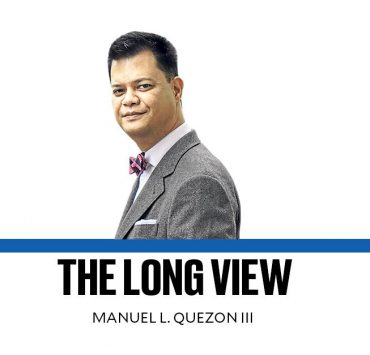More eyes on the national budget

Speaker Ferdinand Martin G. Romualdez made history last week after turning over copies of the P6.793-trillion 2026 National Expenditure Program to civil society organizations, thus making these representatives of ordinary Filipinos and key sectoral groups part of the tortuous national budget approval process from day one.
“This is not just about documents—it’s about trust,” declared Romualdez, “The budget is the lifeblood of the government. It tells our people where we are putting their hopes and their hard-earned taxes. If we want our people to trust us, they must see and feel that the budget is truly theirs.”
Public participation in the crafting of the 2026 national budget—albeit as “nonvoting” members—was precipitated by the adoption of resolutions from both the Senate and the House that called for broader public participation and greater transparency as part of their own commitment to make the budget process “fully open to public scrutiny.”
These moves to include bona fide civil society organizations (CSOs) in the public hearings of the appropriations committee on the national budget were no doubt a direct response to the deafening public outcry over the 2025 budget, which was widely assailed for mysterious realignments and outright removal of budget items that were finalized behind closed doors by a select few.
Official observers
The unanimously approved House resolution provided that accredited observers would be invited to attend budget briefings and deliberations, submit position papers, and access relevant budget documents, thus putting more eyes on the 2026 budget—7.4 percent higher than the enacted 2025 budget—and thus deter attempts to steer it away from priorities such as education, public works, and health.
“Opening the budget process from the legislative side is a big milestone,” said Maxine Tanya Hamada of the Campaign for Tobacco-Free kids, who spoke for the group of CSOs that also included CODE-NGO, Jesse Robredo Institute of Governance, and the Philippine Legislators’ Committee on Population and Development.
That CSOs are invited to the same room as official observers is indeed already a major step toward the goal of making the national budget a “true reflection of the people’s priorities” and therefore “more responsive, inclusive, and aligned with the needs of our people,” as described by Tingog party list Rep. Jude Acidre.
But mere presence is not nearly enough, lest these moves be construed as merely cosmetic and designed to take the heat away from Congress leaders—including Romualdez himself.
Machine-readable formats
They continue to be questioned over their involvement in the drafting of what was described as “the most corrupt” budget in years for slashing funds for basic sectors like education and health while allocating taxpayer money for politicians’ pet projects.
For the public to accept these steps as more than just ceremony and part of a genuine broader push for greater transparency and accountability, then the CSOs should have quick, timely, and complete access to budget information that will allow for meaningful analysis and engagement, as suggested by Social Watch Philippines (SWP), People’s Budget Coalition, and Freedom of Information Youth Initiative.
“Without such access, the people’s right to participate in decisions on public spending remains tokenistic,” said People’s Budget Coalition’s AJ Montesa.
The three groups specifically asked for the release of the 2026 budget documents in open, machine-readable formats to make data mining easier for more accurate analysis, a departure from the current formats that are prone to errors.
Right to information
“In the face of persistent issues of misuse of public funds, the people need timely and complete access to budget documents,” said SWP co-convenor Jessica Reyes-Cantos.
It is a reasonable and valid plea that both the Senate and the House should act on as they go full steam ahead with the deliberations of the 2026 budget that President Marcos wants aligned with the country’s national development agenda.
And while they are at it, they should likewise take on the challenge to finally pass an enabling law to uphold the people’s constitutional right to information.
FOI Youth Initiative co-convenor Patrick Acupan underscored that while budget documents are indeed meant to be disclosed, a strong and enforceable Freedom of Information (FOI) law would empower citizens to go far beyond simply accessing numbers.
“Freedom of Information will allow citizens to interrogate the budget—not just asking how much is allocated to certain programs, but why it is allocated and for whom,” Acupan said.
As such, the House and the Senate can do another historic feat and pass the FOI bill while deliberating on the budget shoulder-to-shoulder with colleagues from civil society.
Doing so will go a long way in redeeming themselves in the eyes of a public already fed up with selfish moves to tinker with the budget to help unscrupulous members of their ranks instead of the Filipino people.

















